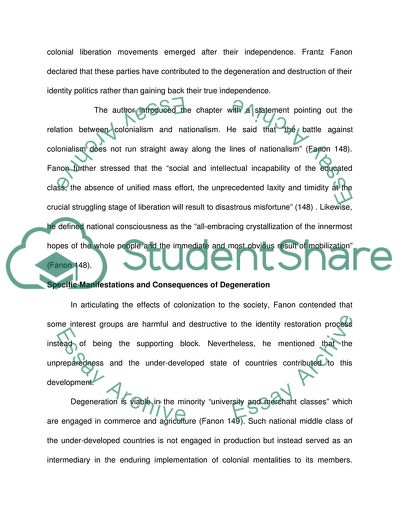Cite this document
(“Fanon on Africa Essay Example | Topics and Well Written Essays - 1250 words”, n.d.)
Retrieved from https://studentshare.org/miscellaneous/1561013-fanon-on-africa
Retrieved from https://studentshare.org/miscellaneous/1561013-fanon-on-africa
(Fanon on Africa Essay Example | Topics and Well Written Essays - 1250 Words)
https://studentshare.org/miscellaneous/1561013-fanon-on-africa.
https://studentshare.org/miscellaneous/1561013-fanon-on-africa.
“Fanon on Africa Essay Example | Topics and Well Written Essays - 1250 Words”, n.d. https://studentshare.org/miscellaneous/1561013-fanon-on-africa.


